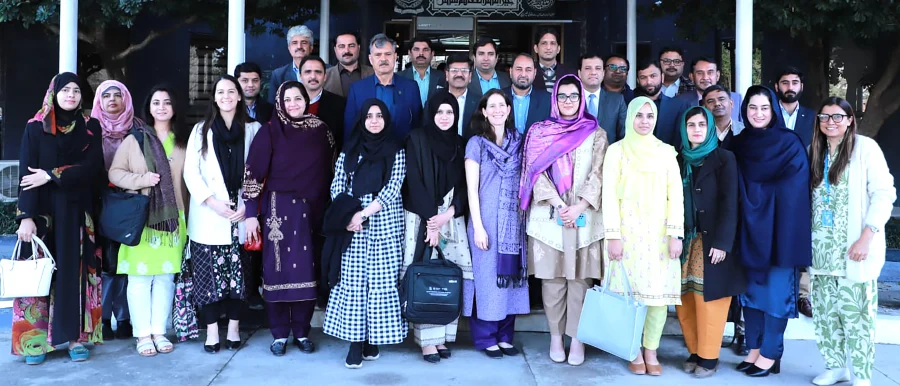The Pakistan Agriculture Research Council (PARC) and the Global Alliance for Improved Nutrition (GAIN) have conducted a comprehensive training session on use of Diet Quality Questionnaire (DQQ) for collecting data on diet quality in collaboration for the research entities from PARC and the provincial governments i.e. Pakistan Bureau of statistics, provincial bureau of statistics & planning and development departments. The training, held at the PARC premises, aimed to enhance understanding and capacity in monitoring diet quality across Pakistan.
Mr. Faiz Rasool, Head of Policy & Advocacy at GAIN termed the training session instrumental in equipping participants with the necessary knowledge and skills to contribute effectively to diet quality monitoring efforts in Pakistan. He mentioned the partnership aims to embed this tool into other existing data tools for collecting and utilizing the data to inform public policies.
Speaking on the occasion Member Social Science Division, at PARC Dr. Ghulam Sadiq Afridi said, “We are grateful to GAIN for their partnership and support in advancing this critical aspect of public health in the food system.”
The session covered various crucial aspects, including the Government of Pakistan’s vision on scaling up diet quality data. Participants gained insights into the importance of diet quality monitoring and national data in Pakistan, aligning with the government’s objectives.
An introduction to the Diet Quality Monitoring Framework was provided by Ms. Anna Herforth (from Harvard University) in the global context, emphasizing the significance of the Data Quality Questionnaire (DQQ) indicator in assessing dietary patterns. Practical sessions on how to effectively utilize the DQQ for data collection and analysis were conducted, enabling participants to impart hands-on experience with the tool.
A highlight of the training was an activity where participants practiced using the DQQ, allowing them to familiarize themselves with its application and potential challenges. Additionally, participants were guided through the calculation of group results, facilitating a deeper understanding of the data collected.
The session culminated in a discussion on sustained diet quality monitoring in Pakistan, delving into the strengths, limitations, and opportunities associated with different survey vehicles for data collection. This exchange provided valuable insights for future initiatives in this vital area.
As Pakistan continues its journey towards improving the food security situation along with the critical aspect of diet quality nationwide, initiatives like this play a pivotal role in strengthening data-driven strategies for enhancing diet quality and overall well-being.










